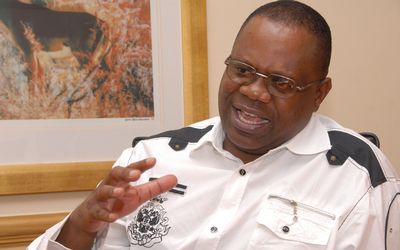AGAINST the backdrop of non-performance, the liquidity crunch and poor remuneration of junior employees among other factors, parastatal chief executives continue drawing high salaries ranging from $12 000 to $40 000 from ailing state-controlled firms.
Investigations by the Zimbabwe Independent revealed that state enterprises bosses were in some cases gobbling over 70% of the wage bill from their parastatals against a continued drop in the quality of service delivery.
It has emerged that most of the state enterprises (SEPs) ordered by former State Enterprises minister, Gorden Moyo, to slash their perks for parastatal bosses have resisted the move.
Information recently obtained showed non-performing state entity Zimbabwe Broadcasting Corporation (ZBC) was splashing $800 000 in salaries per month, with half going to 46 managers.
This is despite the public broadcaster's bankruptcy and outdated infrastructure. Junior staffers have endured about four months without their meagre salaries, forcing Information, Media and Broadcasting minister Jonathan Moyo to intervene and call for an end to the embarrassing situation.
"The least paid manager nets around $7 000 per month, while general managers get about $18 000, heads of department around $14 000 and the highest paid manager more than $20 000. The rest of the employees (reporters and supporting staff) get below $1 000 each," revealed a ZBC employee on condition of anonymity for fear of reprisals.
Furthermore, the source said the managers get $500 entertainment allowance every week apart from other perks like fuel and top of the range company cars.
The same scenario prevails at mobile telephony operator NetOne, National Social Security Authority (Nssa) and the Tobacco Research Board which continue to pay their bosses way above the stipulated figures while the majority of the workforce struggle to make ends meet.
NetOne management, highly-placed sources said, made a unilateral decision early this year to award its managing director Reward Kangai a monthly salary of $40 000 in defiance of the $6 000 salary cap.
This comes amid allegations NetOne may have been prejudiced of millions of dollars in flouted tender procedures, outright fraud and misappropriation of income from the sale of airtime recharge cards.
Nssa is paying its general manager James Matiza $12 000 a month, albeit with board and line minister's approval.
The loss-making parastatals have for long performed dismally due to a wide range of factors, chief among them rampant corruption, corporate misgovernance incompetence and huge executive salaries.
Apart from corruption and bad governance some of the reasons blamed for the gloomy performance of parastatals include undercapitalisation, high overheads, lack of customer confidence, inability to attract investors and lack of access to lines of credit due to unattractive balance sheets.
Furthermore, challenges such as late disbursement of funds, lack of legislative restructuring and institutional framework, lack of role clarity in the restructuring process, resistance to change and negative investor perception on Zimbabwe, and policy inconsistency continue to dog the state hemorrhaging entities.
According to a report produced by the then State Enterprises and Parastatals ministry on the performance of parastatals in 2011, the National Railways of Zimbabwe (NRZ), Grain Marketing Board (GMB), Industrial Development Corporation (IDC) and TelOne were draining the fiscus, while those performing well, which included Zimbabwe Power Company, Petrol Trade and National Oil Infrastructure Company of Zimbabwe only made marginal profits.
Academic and Zimbabwe Institute director Pedzisai Ruhanya said the running down of SEPs was largely hinged on the Zanu PF politics of patronage where it rewarded top military personnel who do not have the expertise to manage the firms.
"There has been a deliberate move to militarise state enterprises in order to strategically reward Zanu PF-aligned former security personnel who assist their oligarchic party to maintain its hegemonic hold on power," he said.
Key parastatals in which ex-military personnel hold sway include the NRZ, GMB, Minerals Marketing Corporation of Zimbabwe, ZBC, Broadcasting Authority of Zimbabwe and Zimpapers.
Other money-spinning companies in which government has a stake such as Mbada Diamonds, Marange Resources and Anjin, exploiting the Chiadzwa diamonds are also under the firm grip of ex-military chiefs.
Mbada Diamonds is led by Retired Air-Vice Marshal Robert Mhlanga while Marange Resources was chaired by Retired Colonel Tshinga Dube who resigned just before elections to contest in Makokoba constituency, Bulawayo.
Economist John Robertson said there was need for a policy shift if parastatals were to make profits.
"The salary should justify the job done. If the SEPS are to improve then there is need for a complete policy shift and either privatise to curb loses or retrench under-performing senior managers," Robertson said.
"The president (Robert Mugabe) should also shift away from a policy of rewarding loyalty at the expense of performance. "
However Auditor-General Mildred Chiri said although parastatals were bedevilled by problems their mandate was delivering services rather than focusing on profit-making.
"Although SEPs are experiencing problems of governance while some of them do not have properly constituted boards, people should not expect parastatals to make profits as they are supposed to deliver services," she said.
Chiri added parent ministries should go the extra mile to ensure parastatals perform.
- theindependent
 Concern over Masvingo black market
Concern over Masvingo black market  Kenya declares three days of mourning for Mugabe
Kenya declares three days of mourning for Mugabe  UK's Boris Johnson quits over Brexit stretegy
UK's Boris Johnson quits over Brexit stretegy  SecZim licences VFEX
SecZim licences VFEX  Zimbabwe abandons debt relief initiative
Zimbabwe abandons debt relief initiative  European Investment Bank warms up to Zimbabwe
European Investment Bank warms up to Zimbabwe  Young Investment Professional (YIP) Graduate Programme 2019
Young Investment Professional (YIP) Graduate Programme 2019 











 Young Investment Professional (YIP) Graduate Programme 2019
Young Investment Professional (YIP) Graduate Programme 2019
Editor's Pick